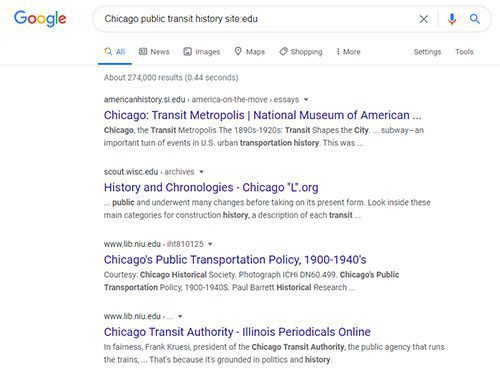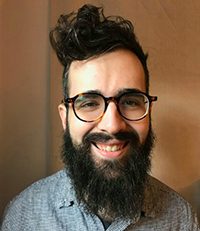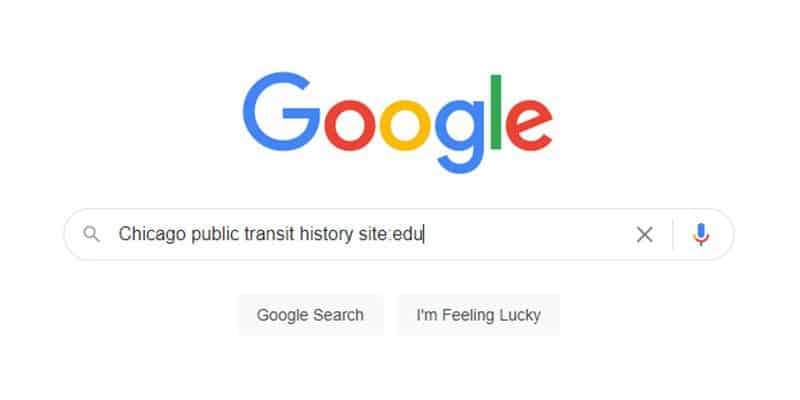By John Gargiulo, Supervising Librarian of Creative Technology
Searching the internet for trustworthy information can feel exhausting at times. With seemingly endless results, it’s often tempting to just click on the first or second option. But is the first result the most useful or the most accurate? Maybe, but not necessarily.
One easy way to narrow the scope of your search is to include a domain suffix. You have probably noticed how websites may end in .com, .org, .edu, .gov, and other endings. These addresses often indicate the purpose of the website—for a business, a community organization, an educational institution, or a body of government, respectively.
If you perform a Google search by including one of these domain suffixes at the end of your search, you will limit the results to websites that end in that suffix. For example, by typing site:org at the end of your search terms, you will limit the results to websites that end in .org. Similarly, if you end your search by typing site:edu, your results will only include websites that end in .edu.
Here is the formula for this search method, along with an example:
Formula: Search terms site:suffix
(Do not leave any spaces between “site”, the colon symbol, and the domain suffix.)
Example: Chicago public transit history site:edu

So how is this technique helpful? By adding a domain suffix like .org or .edu, you are more likely to find information created by established institutions. Information published by nonprofit organizations and educational institutions is more likely to have been researched, critiqued, or reviewed, giving it a level of credibility that other websites may lack.
There are some caveats to this approach. A particular domain suffix is not a guarantee that information is 100% trustworthy or not subject to bias. And there is plenty of quality information on websites with a .com suffix. Searching with site suffixes is just one way of sorting through the vast amount of information on the internet, and it is still important to consult multiple sources when using this technique.
- Interested in more information on different domain suffixes and other ways to read a URL for information? Check out this guide »
- Want to learn more about evaluating sources of news and information? Follow these eight simple steps to discover the verifiability of a news piece »
Have a tech question?

About John
John is a member of the library’s digital learning team and recent graduate of the University of Illinois MS in Library and Information Science program. He enjoys working with patrons to discover how we can demystify technology and shape it to help us with our different needs. He is also a musician and loves making noise.

